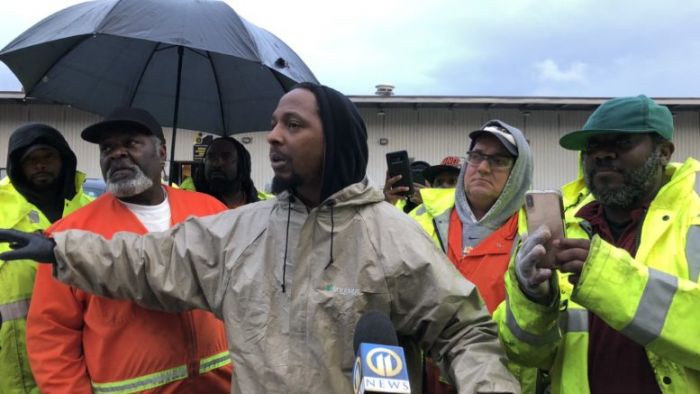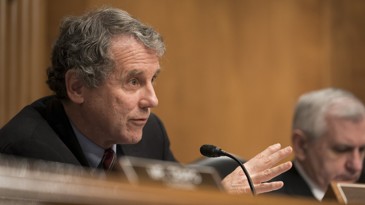Essential Workers Demand & Deserve Hazard Pay during pandemic shutdown

Within the last few days the U.S. has witnessed several impromptu
and spontaneous labor strikes, known as ‘wildcat strikes,’ across it’s states
related to the recent COVID-19 pandemic. In Pittsburg a group of several hundred, mostly black union sanitation
workers, members of Teamsters Local 249, stopped work and went out on strike to
protest unsafe working conditions during the global health crisis.
The strike comes as momentum for strikes goes with
#GeneralStrike becoming the top trending topic on twitter in the United States.
Many are wondering if strikes like Pittsburgh’s sanitation
workers strike could be the beginning of a growing strike wave as Trump insists
that workers to return to work, although, Congress is out due to the health
risk of working.
Workers in Pittsburgh and elsewhere are resisting calls to
work in what most believe is unsafe conditions during the COVID-19 pandemic.
“We want better equipment, protective gear. We have no
masks, “one black union sanitation worker told WPXI.
“We want hazard pay. Hazard pay is very important,” the
worker told WPXI. “Why? Because we have high co-payments on insurance on any
type of bill. We risk our lives every time we grab a garbage bag”.
“Here we are at my job. Ain’t picking up no rub,” black
union sanitation worker Fitzroy Moss said in a Facebook live video. “The
rubbish is sitting there. That’s all they care about is picking up the garbage.
They don’t even care about our health.”
Despite the strike being illegal under state law, the
workers so far have made progress with Pittsburgh’s sanitation service. They
won a small victory as management allowed the workers to take the day off as
they meet with representatives of Teamsters Local 249 to address safety
concerns.
The strike comes as workers across the United States have
begun engaging in a series of bold, illegal wildcat strikes that before
COVID-19 pandemic would have been unthinkable.
Last week, non-union black poultry workers at Perdue Farms
in Georgia went out on a wildcat strike over unsafe conditions. Bus Drivers in
Birmingham went on strike demanding over lack of protections during COVID-19 as
well.
In Queens, New York, Amazon workers walked off the job last
week after a co-worker tested positive for COVID-19.
In Maine, naval shipyard workers at the Bath Iron Workers
went on a “sickout” strike in violation of federal law to protest being labeled
“essential workers” as shipyard workers.
Anger has grown in the labor movement about unsafe working conditions, especially after the announcement of the deaths and infections amongst construction workers and other blue collar professionals.
With workers fearing COVID-19, many workers are willing to
risk their jobs to save their lives.
Historically, General Strikes, like the one that began in
1919 after the influenza pandemic, begin in waves with large groups of workers
going out on strikes. As other groups of workers see the support that initial
wildcat strikes gain, they feel more confident of gaining the necessary
leverage to win a strike.
During the West Virginia Teachers’ strike, teachers in Logan and Mingo County began in December of 2017 going out on one or two-day rolling strikes. These smaller, county-wide rolling strikes demonstrated that not only could teachers defy state law in striking without consequences, but that they could win mass public support.
The smaller strikes helped show teachers in other counties
that they could take similar actions.
Many labor observers believe that the labor movement has
found itself unexpectedly in the early stages of a mass general strike wave in
the era of COVID-19.
“After health care workers, the working class and service
industry workers are on the front lines, navigating the fraught effort to
practice physical distancing,” says University of South Carolina-Upstate
Professor Colby King, the Pittsburgh-area, son of a union steelworker.
“Without widespread testing in our communities and without employers providing protective gear, it’s easy to see why these workers are reconsidering the risks they are willing to put themselves, their families, and their communities at to go to work,” says King.
In a letter to President Donald Trump, Ohio Sen. Sherrod Brown
is calling for companies deemed essential during the cornavirus pandemic to pay
employees ‘hazard pay.'
“The next coronavirus-related legislative package considered by Congress should include a requirement for all companies deemed essential during the coronavirus pandemic to provide so-called “hazard pay,” or Pandemic Premium Pay, to their workers,” the letter read. “Pandemic Premium Pay should be equal to time and a half wages. It should be available to all workers, including part-time workers and independent contractors, for all of their hours worked, and it should be provided in their regular paychecks.”
Under Brown’s proposal the nation’s doctors, nurses, grocery
store workers, home health care workers, building cleaners, deliver workers,
letter carriers, transit workers, construction workers and others working in
essential industries would receive the pay.
The letter comes after a report from U.S. News & World
Report, where the magazine cites the President as saying he is considering
giving health care workers ‘hazard pay.'
Senator Brown proposed that the ‘hazard pay’ should be included as
part of the next coronavirus-related legislative package considered by
Congress. He also said the extra pay should be retroactive to the beginning of
the public health emergency through its conclusion.
But in Washington state, where the pandemic has burned
especially bright, Gov. Jay Inslee (D) has classified nearly all construction
as nonessential and urged workers to stay home. His orders allowed only for
construction projects to continue provided they “further a public purpose
related to a public entity,” which includes publicly financed low-income
housing and emergency repairs. Notably, football stadiums and condos for rich
people do not qualify.
One wonders why so few other state officials have followed his lead. As the outbreak continues to claim more lives, Inslee’s approach must become the rule, not the exception.
Building trade unions have been sounding the alarm on the hardships their members are already facing, and construction workers themselves have been speaking out and calling on elected officials to send them home.
In New York, the hashtags #StopConstruction and #NotAllConstructionIsEssential sent a desperate message to Gov. Andrew M. Cuomo (D) to halt work on frivolous projects. And some politicians are paying attention, including Cuomo, who called off all nonessential construction on last Friday.

